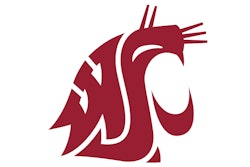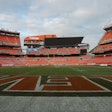Copyright 2018 The Salt Lake Tribune
All Rights Reserved
The Salt Lake Tribune
Four years ago, in what now seems like a picture-perfect forecast, Fraser Bullock called Salt Lake City and Utah "the poster child for what should happen after an Olympics." The onetime chief operating officer for the 2002 Salt Lake Olympic Committee wasn't wrong then. And, four years later, that hasn't changed.
Salt Lake City is, by all logical standards, the front-runner for another Winter Games bid by the United States Olympic Committee set to be announced by year's end. That is due largely to everything that's happened since the Olympic cauldron was extinguished inside Rice-Eccles Stadium over 16 years ago. While the Olympiad bounced around from continent to continent in the decade-plus since Utah first welcomed the world, the city and state have taken calculated steps to keep their name in the conversation.
The venues where top winter athletes won gold, silver or bronze are not a shell of their former selves like several sports sites around the globe. No, the bobsled and skeleton track at the Utah Olympic Park near Park City is still humming, the cross-country course in Midway is still replete with jagged track courses knifing through the Wasatch Back, and the Utah Olympic Oval in Kearns remains one of the annual stops for several speedskating World Cup events. Of course, the Olympics have ballooned since 2002, as well. There were 24 more medal events in Pyeongchang, South Korea (102 in total) this winter than during Salt Lake City's Games.
If the USOC once again picks Utah's capital as its bid city in what the organization continues to call a "future Games," not tied yet to any specific cycle, would the International Olympic Committee have a hard time passing on the infrastructure and vibrant Olympic legacy already in place?
"In Salt Lake, you do tend to have a very positive view of the Olympic Games and a fair number of people who look at the Olympic experience and say, 'Yes, this is something that we would like to do again,'" said Matthew Burbank, an associate professor of political science at the University of Utah, who studies urban policy and the Olympics. "That's something that some cities were just never going to do again. In many other places, there isn't that sort of broad-level spread of support."
The advantages
While other potential bid cities around the globe are saddled with internal strife regarding whether spending several billion dollars for an Olympics would be beneficial, the new Salt Lake City brain trust is simply awaiting its turn to prove what it says could be one of the most economically run Games ever.
In the first meeting between the new Salt Lake Executive Committee for the Games and the Salt Lake Olympic and Paralympic Exploratory Committee (OEC) on Tuesday afternoon, Bullock, now a co-chairman of the OEC, said he's seen absurdly high estimates some cities say putting on a Winter Olympics would cost. An OEC report stated that an Olympic return to Utah would cost less in the future, at $1.29 billion, than it did in 2002, at $1.389 billion.
The 2002 Salt Lake Olympic Committee brought in more than $1.5 billion in revenue, and reports from earlier this year indicate that a future Games would bring in more than $1 billion through various revenue platforms like broadcasting, ticketing, merchandising and other streams deemed "high-confidence." The $292 million gap to simply break even, budget analysts have said, must be made up through Utah-based sponsorships and donations.
Bullock also said the IOC wants to change the way cities bid to avoid shelling out millions and millions in what eventually becomes unnecessary cash spent if the bid goes to another finalist. Chicago's failed bid for the 2016 Games is still impacting its residents a decade later. According to a report from the Chicago Tribune, the city still remains on the hook for $140 million in principal and interest on purchase of property for what would've been the Olympic athletes village.
"It's actually better for us to know that we're the choice when the opportunity comes," said Utah Senate President Wayne Niederhauser, R-Sandy. "I think it will be less expensive for everybody, for the benefit of everybody. If we're chosen, Denver's not going to be spending a ton of money now, and Reno's not going to be spending a ton of money now."
Salt Lake City Mayor Jackie Biskupski, a co-chair with Niederhauser of the newly formed executive committee, said the fact her city could stage a financially responsible Games benefits everyone, especially Utahns.
"We don't have these high costs looming over our heads," she said. "We are well-positioned to show the world how to have a sustainable Games, how to make sure that as you become an Olympic city, that you do your part to maintain your venues, so that you have a sustainable future in the world of Olympics."
Burbank said he's noticed a trend worldwide in recent years in which opposition to Olympic bids runs deeper than in year's past. Now more than ever, cities and governments are bucking bids for fiscal reasons, taking the long view instead of falling for the romanticism of showcasing a city, state or country at the expense of more important needs elsewhere.
"They're very demanding, and, over time, they've just become more so," Burbank said of hosting an Olympics.
Local support
Since launching the OEC last October, opposition to a potential second run at an Olympics hasn't been heard all that loudly. Committee officials are convinced that, 16 years after Utah made a historic impression on the world, they could do it again, this time with a much larger, more diverse population. The Olympics, after all, are part of the reason why Utah grew in the aftermath of the Games.
Burbank warns that it might not be as warmly received as 2002.
"The second time around, it's not as clear if you'll be able to sustain that support in the same way," he said. "I think that does change the dynamic."
But the 2002 Games is why several Olympians and hopeful future Olympians eventually relocated to Utah full time - to train, to live, to keep the pursuit of the Olympic dream alive and well. A recent poll said 83 percent of Utahns would support another Olympics in the Beehive State a few months after 89 percent voiced their backing. Biskupski said the public support stems from so much of the community being involved firsthand in the 2002 Games as volunteers or as spectators - or both.
Biskupski said the USOC will soon conduct its own independent poll to collect data to compare with various in-state polls taken in the past year that show Utah would overwhelmingly support another go. It helps, too, that young fans of the 2002 Games are now at the forefront of the U.S. Olympic team. Several Utahns who might've been too young to remember the Games in Utah were part of Team USA in South Korea in February.
Four years ago, Bullock said "All along, what we wanted to do is put on our Games, have a lasting, enduring long-term legacy that would allow our children to participate in these great sports, and get out there and be active and have these great venues with the potential hope we would host again someday."
The stars might be aligning for Salt Lake City for an encore. The ongoing $3.6 billion rebuild of the Salt Lake City International Airport is in full swing. The proximity of the airport to the city and venues, Niederhauser explained, is crucial.
"Several Olympic associations are headquartered here, and we're compact," he said. "The airport is very close to the city. The housing is very close to the city. And in this very compact area, we have transit. We've invested in our roads. ... We have that more robust infrastructure [to offer]."
The USOC is scheduled to decide on its domestic bid city by year's end. Will this long game Salt Lake City has been playing since the city first lit the fire within in 2002 pay off? Burbank said the IOC, without outrightly voicing it, prefers a place like Salt Lake City where venues, housing and transportation would be tightly clustered, where important pieces are already firmly in place.
"We all can be proud," Jeff Robbins, CEO of the Utah Sports Commission and co-chairman of the OEC, told the respective committees Tuesday. "There's nobody doing what we've done. It's a team effort. The only way you win is if you're a good team."
Read More of Today's AB Headlines
Subscribe to Our Daily E-Newsletter
Terms and Conditions Privacy Policy



































